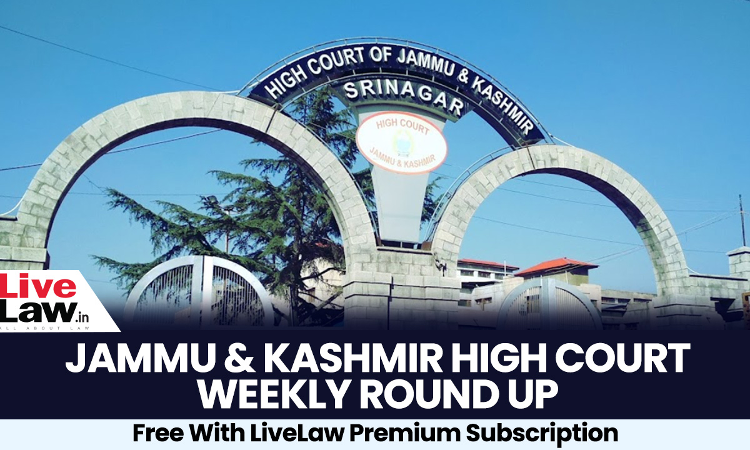J&K&L High Court Weekly Round Up: September 5 To September 11, 2022
Basit Amin Makhdoomi
12 Sept 2022 8:00 AM IST

Next Story
12 Sept 2022 8:00 AM IST
Nominal Index [Citations 137 - 148]:Mohammad Ali Bhat Vs Shafeeqa Bano & Ors 2022 LiveLaw (JKL) 137Manzoor Ahmad Lone Vs UT of J&K & Ors 2022 LiveLaw (JKL) 138Showkat Aziz Zargar Vs Nabeel Showkat & Another 2022 LiveLaw (JKL) 139Vijay Gupta & Ors Vs Deeksha Sharma & Ors 2022 LiveLaw (JKL) 140Abdul Bari Naik v. State of J&K and others 2022 LiveLaw (JKL)...
